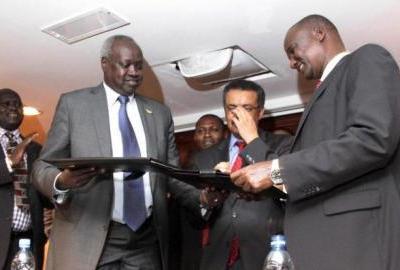South Sudan peace monitors decry ceasefire violations
March 16, 2016 (JUBA) – South Sudan government troops and its armed opposition forces violated the permanent ceasefire five times, between 28 December 2015 and early March, the Ceasefire and Transitional Monitoring Mechanism (CTSAMM), said.

“But both parties were implicated in the violation reports that were tabled today in the meeting,” Ruth Feeney, CTSAMM’s strategic communications officer told reporters in Juba after a meeting attended by representatives from both sides.
The CTSAMM, Feeney said, confirmed that the warring factions have clashed in Western Equatoria, Western Bahr El Ghazal and in the Greater Upper Nile region.
The Joint Monitoring and Evaluation Commission (JMEC), the body mandated to oversee the implementation of the peace agreement, will name the party responsible for the ceasefire violations, she said.
Feeney also observed that the CTSAMM was facing some problems, specifically hinged on the restrictions imposed on their movement.
“Every day, the MVT faces restriction on the freedom of movement. So it is actually an ongoing thing, we are not having difficulties in one area or another. Across the board, we are facing restrictions on our movement, which does not comply with chapter two stipulations,” she said.
The official was optimistic that the parties’ continued disagreement on cantonment areas will not frustrate implementation of the peace deal.
“I don’t think so,” said Feeney, adding “But the groups [government and opposition] should declare the numbers of soldiers and weaponry to help in monitoring and verification of ceasefire violations”.
The peace agreement aimed to end the 21 months of war in the South Sudan conflict and to form a Transitional Government of National Unity (TGoNU), which will run the country for two and a half years at the end of which a general election shall be conducted.
(ST)
